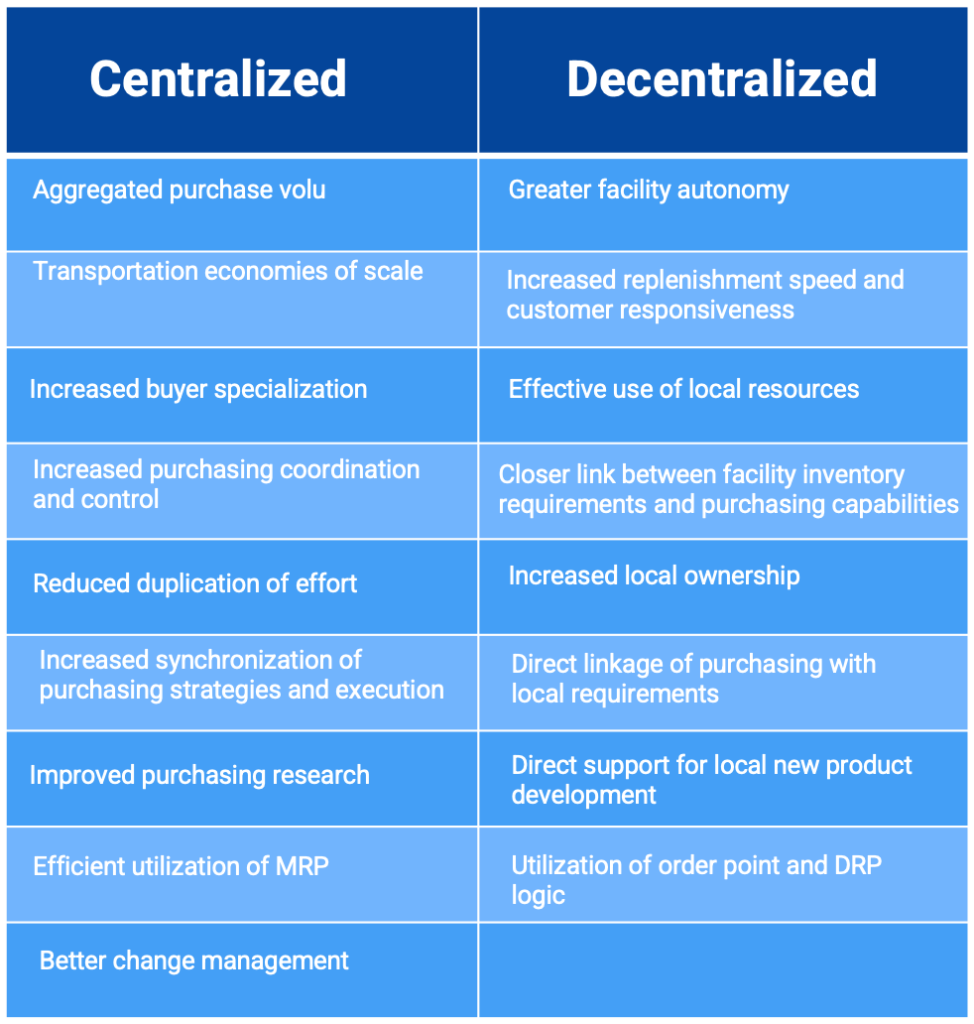Many companies with multiple facilities spread across different locations face the challenge of deciding how to manage their purchasing function. They must decide whether to centralize the process at their corporate headquarters or decentralize it and let each facility handle their own purchasing. Alternatively, a hybrid approach can be taken where products that are commonly used are bought centrally, while specialty products are bought locally by facility-level buyers. Decisions regarding centralization or decentralization depend on several factors, and it’s important to consider all these factors together before making a decision.
Business Strategy
If a business wants to provide high customer service levels while operating in multiple geographical regions, a decentralized approach would be more effective. On the other hand, for a firm offering low-cost commodity-type products, centralizing purchasing would be more successful in achieving economies of scale in terms of pricing, production, and transportation.
Nature of Products Offered to the Marketplace
When an enterprise has a diverse range of products but organizes them by region, it is better to have a decentralized approach to purchasing. On the other hand, if most or all of the products are available in different regions, a centralized option is more efficient. However, certain products like perishable items or expensive-to-transport products, as well as services, are better sourced locally.
Total Purchasing Expenditures
When the overall amount of purchases increases, it becomes more efficient to centralize purchasing functions in order to achieve economies of scale. Consolidating inventory is also beneficial when facility and inventory expenses make up a significant portion of the internal costs of a supply chain, particularly transportation expenses to satellite facilities.
Overall Management Philosophy
The choice between centralization and decentralization when it comes to purchasing has been a topic of debate for a while. The approach chosen is influenced by a number of factors such as customer service goals, transportation expenses, the skills of procurement staff, the preferred level of supplier collaboration, and financial and performance objectives.
Advantages of Centralized versus Decentralized Purchasing
It can be difficult to determine whether to adopt a centralized or decentralized approach to purchasing. Generally, purchasing commonly used items in large quantities is more efficient when done by a centralized team, while obtaining specialized products and services is best handled at a local level. The following table highlights the benefits of both centralized and decentralized purchasing.

